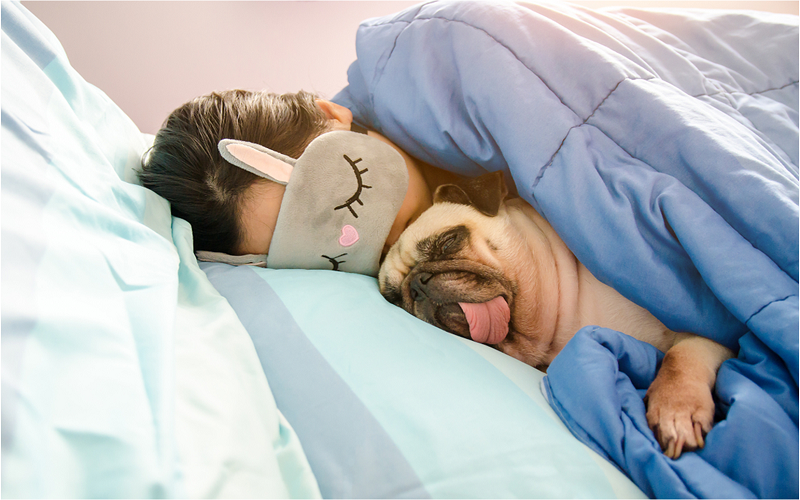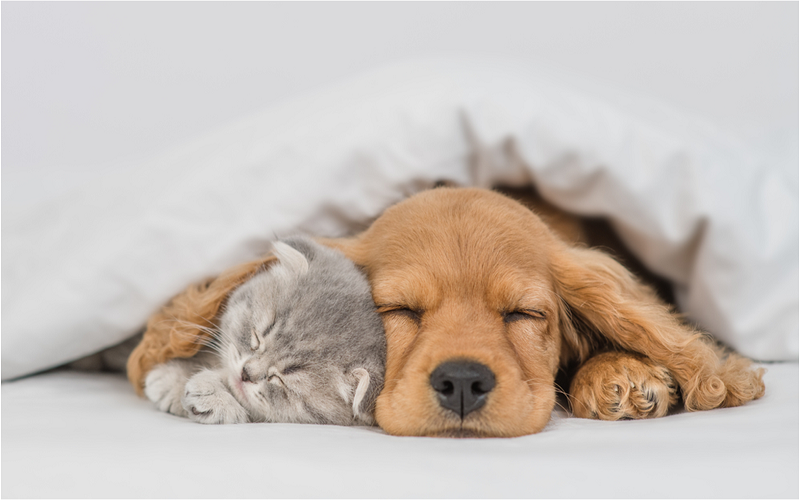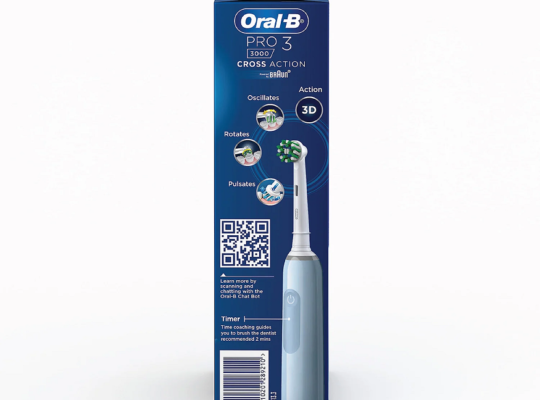Adjusting your dog or cat’s sleep schedule to align with yours can be a complicated process, involving changes in feeding, exercise and environment. From ensuring you’re all sleeping on the best mattresses to food and water schedules, here are some tips and recommendations to help you achieve this.
How to Adjust Your Dog’s Sleep Schedule
Establish a Routine
Consistency in a dog’s daily routine helps create a sense of security and predictability. Having set times for meals, walks and bedtime not only aids in training but also helps regulate your dog’s internal clock. This can reduce anxiety and restlessness at night. Dogs thrive on routine, so a consistent schedule can lead to better behavior and improved sleep patterns. It’s important to stick to this routine even on weekends or days off to maintain their circadian rhythm.
Evening Exercise
Adequate exercise is crucial for your dog’s physical and mental well-being. Evening exercise plays a critical role in helping them wind down. Activities like a long walk or playtime in the evening help to expend their pent-up energy, making them more relaxed and ready to sleep. Remember, the amount and intensity of exercise should be appropriate for your dog’s breed, age and health. This practice also helps in avoiding late-night restlessness or destructive behaviors.
Late Evening Feeding
Adjusting your dog’s feeding schedule can influence their sleep pattern. Feeding them their last meal later in the evening can prolong their overnight fasting period, reducing early morning hunger and wakefulness. This can align their schedule more closely with yours, potentially leading to uninterrupted sleep for both of you. However, be mindful of the portion size and nutritional needs, ensuring that this late meal doesn’t lead to weight gain or digestive issues.
Create a Comfortable Sleeping Environment
A dog’s sleep environment significantly impacts its ability to sleep well. A dedicated, quiet space with a comfortable bed is essential. The bed should be supportive, especially for older dogs or those with joint issues. Position the bed away from high-traffic areas to minimize disturbances. Additionally, consider the room temperature and lighting — a cool, dim environment is usually ideal for dogs. If your dog sleeps with you, ensure that your bed accommodates everyone comfortably. Aim for a mattress in queen size or larger and go for something comfy like luxurious plush beds. This can enhance the sleep quality for both you and your pet.

Source: fongleon356/Shutterstock.com
Limit Water Before Bedtime
Managing your dog’s water intake in the evening can help prevent nighttime disruptions. Limiting water a few hours before bed reduces the likelihood of them needing to go outside during the night. However, it’s important to ensure they are well-hydrated throughout the day. Always provide access to fresh water during waking hours and monitor their intake, especially in hot weather or after exercise. If your dog is still having nighttime bathroom needs, consult with a veterinarian to rule out any underlying health issues.
How to Adjust Your Cat’s Sleep Schedule
Automatic Pet Feeders
Automatic pet feeders are a convenient way to regulate your cat’s feeding times and quantities. By scheduling meals, especially early morning feeds, you can prevent your cat from associating your wake-up time with feeding time. This not only helps in maintaining a consistent feeding routine but also discourages your cat from waking you for food. Some feeders offer portion control and multiple feedings, which can be especially useful for cats on a strict diet or those who tend to overeat.
Active Playtime
Cats, being natural predators, have a lot of energy to expend. Engaging them in stimulating play, particularly in the evening, mimics their natural hunting behavior and helps them expend their energy. Use toys that encourage chasing, pouncing and jumping. This playtime not only keeps them physically fit but also mentally stimulated, reducing the likelihood of nocturnal restlessness. An adequately tired cat is more likely to sleep soundly through the night, aligning better with your sleep schedule.
Evening Feeding
Feeding your cat later in the evening can greatly influence their sleep patterns. Cats naturally tend to sleep after a big meal. By shifting their dinner time to later in the evening, you encourage them to sleep longer into the night, aligning their sleep cycle more closely with yours. It’s important to ensure that this meal is balanced and fulfills your cat’s nutritional needs while not overfeeding them.
Comfortable Bed
While cats often choose their own sleeping spots, providing a designated, comfortable bed can encourage more consistent sleeping habits. Place the bed in a quiet, undisturbed area of the house. Cats prefer warm, cozy spots, so consider beds with cushioning or even heated options. While they may not use it all the time, having a familiar and comfortable place can help them settle down for the night.
Nighttime Activities
If your cat is active at night, provide quiet toys or activities. This could include puzzle feeders, soft toys or items that encourage gentle play without much noise. These activities can keep your cat occupied without being too stimulating or loud, which helps maintain a peaceful environment conducive to your sleep.
Source: My Ocean Production/Shutterstock.com
Avoid Reinforcing Nighttime Wakefulness
It’s crucial not to reinforce your cat’s nighttime wakefulness by responding to them during the night. If your cat tries to engage with you, resist the urge to interact. This teaches your cat that nighttime is for sleeping, not for play or feeding. Consistency in this approach will gradually help your cat understand that nighttime is quiet time, and they will adjust their behavior accordingly.
Final Thoughts
Remember, every pet is unique, and it may take some time for them to adjust to a new schedule. Patience and consistency are vital in this process. If you find that your pet is struggling with sleep or their behavior changes significantly, it’s always a good idea to consult with a veterinarian.










